#paolo x francesca
Text
PAOLO X FRANCESCA: The lovers’ lust
I went on a little trip in Italy and stumbled onto a little mountain village that was supposedly the one where these two lovers kissed for the first time. Being a big fan of Dante, this was a pleasant surprise :)
For those that don’t know about their story:
Paolo and Francesca are two lovers that burn in Dante’s Inferno in the ring of Lust because she fell in love with her husband’s brother.
The plot:
Paolo and Francesca went walking in the woods and stopped to read a book about Lancelot and Queen Ginevra, another well known couple in literature: they read about their story and how they fell in love and how their passion burned brightly. As their eyes skimmed through the lines they noticed that what was told about Ginevra and Lancelot could also be told about them, since they were secretly in love, as much as the queen and the paladin were. Many times their eyes met, cheeks burning, as they found the novel relatable to themselves, tension lingering between the two until Paolo, with shaky hands, lunged forward, finding courage to finally kiss Francesca on the lips, breaking his brother’s loyalty ( Francesca’s husband) and also violating the marriage contract. Needless to say they kept on loving eachother til death, imposed by the husband who unalived them both in a fit of rage an jealousy.
Dante puts them in hell because they succumbed to lust and violated the principles of the catholic marriage, according to the belief of that time, but at the same time he narrates their story softly, shedding tears as the lovers talk to him telling him their story.
In particular I quote the moment in which they missed, because I find it very very pretty:
(Dante’s Divina Commedia, Inferno, V)
<<Noi leggiavamo un giorno per diletto
di Lancialotto come amor lo strinse;
soli eravamo e sanza alcun sospetto.
Per più fïate li occhi ci sospinse
quella lettura, e scolorocci il viso;
ma solo un punto fu quel che ci vinse.
Quando leggemmo il disïato riso
esser basciato da cotanto amante,
questi, che mai da me non fia diviso,
la bocca mi basciò tutto tremante.
Galeotto fu 'l libro e chi lo scrisse:
quel giorno più non vi leggemmo avante>>
Translation:
“We were reading one day for delight, about Lancelot and how Love embraced him; we were alone and without any suspicion.Many times that reading made our eyes wonder and paled our faces; but only one line was the one who won us over. When we read about the smile that was so longed to be kissed by that lover, this (man), that ought to be never be separated from me, kissed my mouth, trembling. Galeot was the book and its author, that day we didn’t get to read past (that line)”
I really hope you can find this as beautiful as I did when I first stumbled upon Dante’s writings🤍
I think I will narrate about famous couples’ stories in the future :)
#the fox writes#paolo x francesca#dante alighieri#dante#lovers#forbidden romance#vintage#flowers#nature#pets#plants#art#art blog#love poem#love quotes
1 note
·
View note
Text
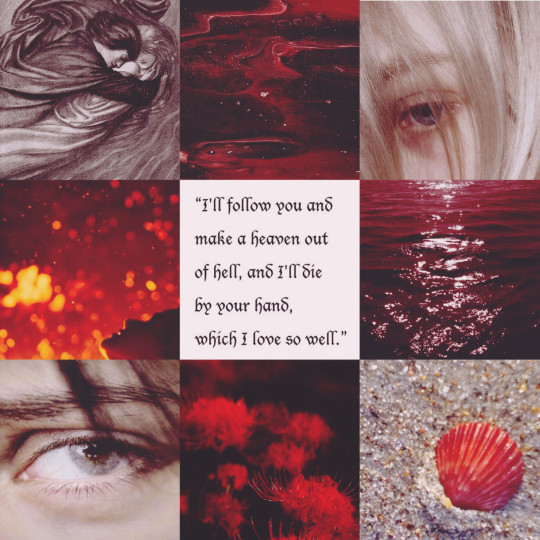
Eremin Hell Aesthetic
#eremin#eren x armin#armin x eren#eren yeager#armin alert#snk#aesthetic#paolo and francesca#dante's inferno#hell#queue: eremin my beloved
33 notes
·
View notes
Note
Hi! Might I suggest a song? Francesca by Hozier gives me HUGE Elriel vibes :)
I heard it’s about a couple from Dante’s inferno that were condemned for being affair partners. However, hozier doesn’t vilify them but instead makes their love seem so strong and the speaker has no regrets. It reminds me a of Elriel because, while I don’t believe they are having an affair in any way, it represents acting outside of the path that was set for you. A love so strong you damn the consequences to be together.
Just some thoughts :)
Thank you for your suggestion!
I love Hozier and Dante’s Inferno (i’m so very italian in this Moment 😂) was one of my favorite works to study 🥹
This song was in my list already especially for The tragic and forbidden 😏 story of Paolo and Francesca
Yes it involves adultery BUT it was inevitabile for how their story began. I will put a small summary I found because I’m still not very Good with written English 😅
Francesca was the daughter of the lord of Ravenna, a city-state at war with Rimini, a rival power in northern Italy. To secure peace, Francesca’s father entered into an alliance with Rimini’s leaders, agreeing to marry his daughter to their heir apparent, Giovanni, who has been variously described as uncouth and deformed or crippled. The Francesca’s father was perceptive enough to realise that his romantic young daughter would not welcome such a man as her husband, so the handsome Paolo was invited to stand proxy for his brother at the wedding. Unfortunately, it would appear that no one told Francesca that Paolo was only the proxy. Francesca had fallen instantly in love with the dashing Paolo and must have thought herself the luckiest girl in the world, so we can only imagine her feelings of horror when she discovered the truth. Paolo and Francesca began an affair and when Giovanni discovered them, he killed them both in a rage.
So yes it has some very Elriel vibes (minus The tragic end I Hope!) I’ll leave a little of their quote from Dante’s Inferno its too beautiful 🥹
Love, that can quickly seize the gentle heart,
took hold of him because of the fair body
taken from me—how that was done still wounds me.
Love, that releases no beloved from loving,
took hold of me so strongly through his beauty
that, as you see, it has not left me yet.
[…]
One day, to pass the time away, we read
of Lancelot—how love had overcome him.
We were alone, and we suspected nothing.
And time and time again that reading led
our eyes to meet, and made our faces pale,
and yet one point alone defeated us.
When we had read how the desired smile
was kissed by one who was so true a lover,
this one, who never shall be parted from me,
while all his body trembled, kissed my mouth.
A Gallehault indeed, that book and he
who wrote it, too; that day we read no more.”
Ah to read a scene like this in their book 😍 my heart would not Be able to handle it 🥹
13 notes
·
View notes
Text

"Love has conducted us unto one death; Caina waiteth -him- who quenched our life!"
-Paolo and Francesca; Dante's Inferno, Canto V.
#Sakuna x Wansarut#phayatharn#the sign series#They so remind me of Paolo and Francesca i can't cope-#First time trying this type of stuff lol#thoughts#aesthetic#feelings#the sign episode 8#the sign
4 notes
·
View notes
Text
John Seed and the junior deputy both dying in the aerial battle and being sent to the Second Circle of Hell, which is Lust, forever circling each other through the tempest.
#far cry 5#john seed#john seed x deputy#john seed x deputy rook#the deputy#deputy rook#they're Francesca and Paolo#because Dante and I said so
10 notes
·
View notes
Text





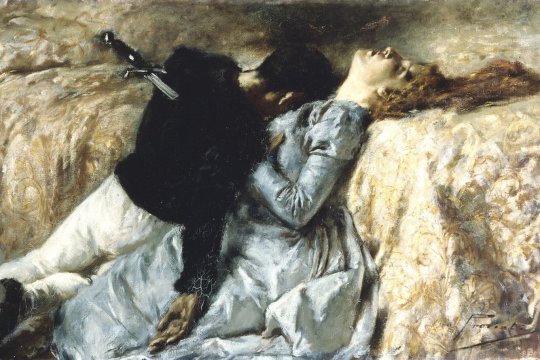




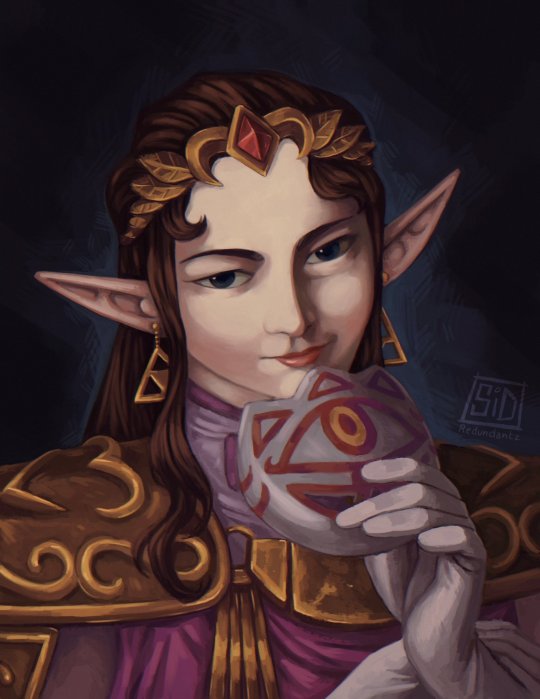



Zelda x Classic Paintings
Frederic Leighton - The Reconciliation of the Montagues and the
Capulets over the Dead Bodies of Romeo and Juliet (1855)
Frederic William Burton - Hellelil and Hildebrand, the Meeting on the Turret Stairs (1864)
Gaetano Previati - Paolo e Francesca (1887)
Emile Levy - Le Vertige, Idylle (1867)
William Mulready - The Sonnet - (1839)
Charles-Antoine Coypel - Young Girl Holding a Mask (1745)
Lamia - JW Waterhouse (1916)
#zelda#zelink#legend of zelda#link#totk#botw#tears of the kingdom#ocarina of time#breath of the wild#skyward sword#my art#redundantz art#long post
5K notes
·
View notes
Note
How would Baldwin react if reader got sick?
King Baldwin x reader - sickness
A/N: I'm loving all this king Baldwin enthusiasm, I've been waiting for this moment for ages omfg!!! (little 10 year old me is screaming now that I have the chance to write for my historical crush).
Btw I don't know if I should be making all the fancy set up for all headcanons of him (like, author's note, warning and painting), the last posts didn't have it because it didn't seem fit to me but you let me know
Psssst painting is "Paolo and Francesca" by Frank Dicksee
Warning: none, sickness maybe?
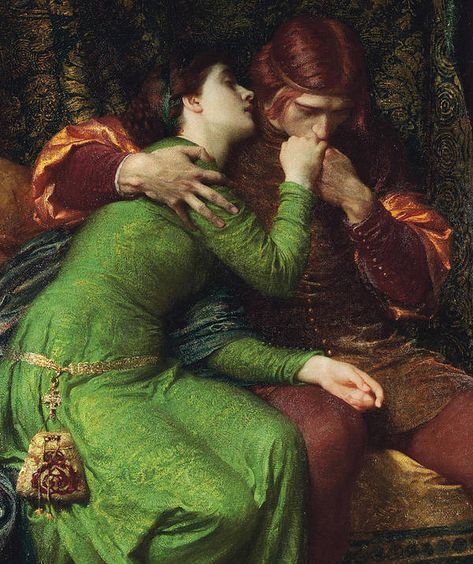
Oh boy
You wouldn't be able to leave your bed.
Sickness was a big deal back then, you could easily die form a cold, so ain't no way that he's taking any more risks.
To be honest the climate was less brutal in Jerusalem than Europe, which was even colder than modern times (and living in Switzerland I can assure you that it gets REALLY cold).
He would insist on keeping you in his quarters, always near his sight, and when he had to leave to attend to his royal duties you'd be surrounded by his best physicians to take care of you.
But he would like it best when he's the one tending to you, it's one of the most intimate moments he gets with his beloved
He'd use a wet cloth to clean your face of the sweat, gently caress your body while he orders to get some ice from his servants to cool your body down
Incense would fill the room to ease your mind and make the ambience more comfortable for you to rest
He'd love to bathe you, hold your weakened body as he frees you of that sickly sticky feeling that has been clinging to your body for the past days
It would take you some convincing to let him sleep with you in the same bed to be honest, as he would've been too scared to be that close to you while you're so weakened already
Because, what if in this state your body is so weak and ill already that it makes it easier for you to contract leprosy as well? He wouldn't survive the guilt of knowing that he'd be the cause of your demise
He would've only relented after seeing your pleading eyes, begging to have him close to you at night, to not be left alone, to not have to suffer his absence too
But all his worries would be washed away once he got to feel your body close to his once again, see your droopy eyes looking at him and your weak smile of gratitude for his closeness
Then, once you would've fallen asleep, he would hold you a close as possible, kissing your boiling hot forehead while he prayed God to let you live, to let you stay with him just a little longer
And he was sure his prayers had been listened once he wakes up to the sight of you, smiling at him with renewed strength, your body once again fresh to the touch
You were healed, and he couldn't have been more happy even if he'd woken up healed by leprosy himself
#f!reader#king baldwin x reader#kingdom of heaven#king baldwin iv#king baldwin x you#headcanons#historical fiction#anon ask
30 notes
·
View notes
Text

Paolo and Francesca, Jan Bogaerts, 1902-07
Oil on canvas
101 x 150 cm (39 ¾ x 59 in.)
#art#painting#jan bogaerts#20th century#20th century art#1900s#oil#dutch#historical art#literary art#paolo and francesca
24 notes
·
View notes
Text
An excerpt from the Essay On Self Respect by Joan Didion - Chronicler of the Zeitgeist!

To do without self-respect, on the other hand, is to be an unwilling audience of one to an interminable home movie that documents one's failings, both real and imagined, with fresh footage spliced in for each screening. There’s the glass you broke in anger, there's the hurt on X's face; watch now, this next scene, the night Y came back from Houston, see how you muff this one. To live without self-respect is to lie awake some night, beyond the reach of warm milk, phenobarbital, and the sleeping hand on the coverlet, counting up the sins of commission and omission, the trusts betrayed, the promises subtly broken, the gifts irrevocably wasted through sloth or cowardice or carelessness. However long we postpone it, we eventually lie down alone in that notoriously un- comfortable bed, the one we make ourselves. Whether or not we sleep in it depends, of course, on whether or not we respect ourselves.
To have that sense of one's intrinsic worth which, for better or for worse, constitutes self-respect, is potentially to have everything: the ability to discriminate, to love and to remain indifferent. To lack it is to be locked within oneself, paradoxically incapable of either love or indifference. If we do not respect ourselves, we are on the one hand forced to despise those who have so few resources as to consort with us, so little perception as to remain blind to our fatal weaknesses. On the other, we are peculiarly in thrall to everyone we see, curiously determined to live out—since our self-image is untenable—their false notions of us. We flatter ourselves by thinking this compulsion to please others an attractive trait: a gift for imaginative empathy, evidence of our willingness to give. Of course we will play Francesca to Paolo, Brett Ashley to Jake, Helen Keller to anyone's Annie Sullivan: no expectation is too misplaced, no rôle too ludicrous. At the mercy of those we can not but hold in contempt, we play rôles doomed to failure before they are begun, each defeat generating fresh despair at the necessity of divining and meeting the next demand made upon us.
It is the phenomenon sometimes called alienation from self. In its advanced stages, we no longer answer the telephone, because someone might want something; that we could say no without drowning in self-reproach is an idea alien to this game. Every encounter demands too much, tears the nerves, drains the will, and the spectre of something as small as an unanswered letter arouses such disproportionate guilt that one's sanity becomes an object of speculation among one's acquaintances. To assign unanswered letters their proper weight, to free us from the expectations of others, to give us back to ourselves—there lies the great, the singular power of self-respect. Without it, one eventually discovers the final turn of the screw: one runs away to find oneself, and finds no one at home.
On Self-Respect: Joan Didion’s 1961 Essay from the Pages of Vogue
#funny memes#words#light academia#studyinspo#poets on tumblr#writeblr#writers on tumblr#painting#joan didion#vogue magazine#dark academia#dark aesthetic#life lessons#self care#self love#self respect#essay#studyblr#protest#Kat shares stuff#artists on tumblr#quotes
10 notes
·
View notes
Text
"Vi ricordate questi versi: «Amor, ch'a nullo amato amar perdona?»
Sono i versi più famosi della Divina Commedia, ma vi siete mai chiesti cosa significano? Ecco, Dante è all’Inferno e a un tratto note due amanti, Paolo e Francesca, abbracciati assieme, anche nel tormento. Di cosa parla la storia di Paolo e Francesca? Dell’incontro di due innamorati, del desiderio bruciante, della tenerezza, dell’attesa. «La bocca mi baciò tutto tremante,» così Francesca descrive il suo l’amore per Paolo. Quando il marito di Francesca li scopre, trafigge entrambi gli amanti con la propria spada. E Francesca, ricordando quel momento, pronuncia queste parole:
Amor, ch'a nullo amato amar perdona,
mi prese del costui piacer sì forte,
che, come vedi, ancor non m'abbandona
Ma che cosa vi sta dicendo Dante? Che l’Amore non «perdona» nel senso di “non risparmia” nessuno. Nessun uomo può sottrarsi alla forza dell’amore. Qualcuno obietterà: Dante non ha niente da insegnarci, mette Paolo e Francesca all’inferno perché entrambi si erano macchiati di adulterio. È un’idea antiquata questa? Certo che lo è! Dante apparteneva a un’epoca diversa dalla nostra, sarebbe assurdo pretendere che non sia così. Ma non è questa la cosa importante.
Vedete, la storia di Paolo e Francesca è la storia di due anime legate in vita da un amore indissolubile, un amore che è sopravvissuto perfino alla morte. Ecco, oggi c’è gente che dopo qualche minuto dimentica di averti conosciuto; le relazioni sono «usa e getta», sembra che la gente abbia vergogna di usare la parola amore e che veda nei sentimenti una debolezza. Si gettano nei centri commerciali, non fanno che inseguire piaceri e divertimenti per compensare la mancanza di compassione, amicizia e amore. Non posso fare a meno di domandarmi cosa abbia reso la gente tanto distratta, tanto superficiale e impermeabile al sentimento. Ed ecco perché leggere la Divina commedia mi fa stare bene: in una società sempre più arida ed anaffettiva mi ricorda che cose come il sentimento, la passione e l’amore sono la ricchezza più grande."
G.Middei
Professor X
#istruzione #cultura #letteratura #dante
23 notes
·
View notes
Photo


Anselm Feuerbach
Paolo and Francesca, 1864
Oil on canvas, 137 x 99.5 cm
Schackgalerie, Munich
↪ Get this design on a notebook 🥀
#anselm feuerbach#paolo and francesca#dante alighieri#the divine comedy#dantes inferno#german art#oil painting#art history#dark academia#dark academia aesthetic#light academia#light academia aesthetic#romantic academia#academia aesthetic#art major#art student#curators on tumblr#colors#palette#color palette
53 notes
·
View notes
Text
Insomnia has their cruel claws in me once again
So I’m letting my latest obsessions eat me alive
New song by Hozier called “Francesca” based on > “the first tragic love story” - Paolo and Francesca da Rimini > artwork by Dante Gabriel Rossetti, inspired by Dante Aligheri's Inferno, Canto V
It’s all symbolic and connected from centuries ago to now a constant kaleidoscope of old and new but love and art remains untouched.
The world is on fire
It’s purgatory and paradise
let’s love and sin and create while we can x








8 notes
·
View notes
Photo

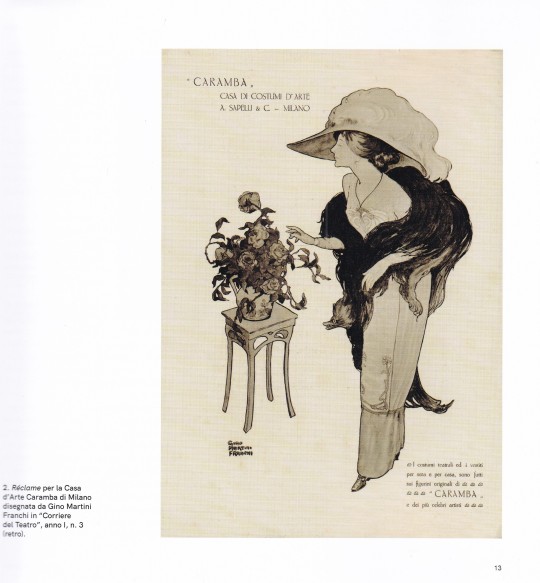
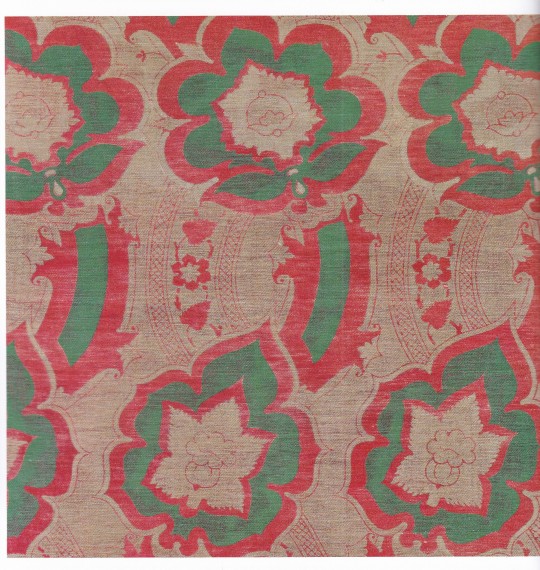







In Scena ! Luci e colori nei costumi di Caramba
catalogo a cura di Silvia Mira
Testi di Massimo Cantini Parrini, Silvia Mira, Paolo Peri, Francesca Pipi, Vittorio Ugo Vicari
Sagep Editori, Genova 2022, 156 pagine, 22 x 22 cm, ISBN 978-88-6373-863-6
euro 28,00
email if you want to buy :[email protected]
La Fondazione Accorsi-Ometto rende omaggio alla bellezza, intesa come eleganza delle forme, preziosità dei tessuti e cura dei particolari, con una splendida mostra dedicata al ‘Mago’ dei costumi teatrali Luigi Sapelli, in arte Caramba al Museo di Arti Decorative Accorsi-Ometto Torino 7 aprile- 4 settembre 2022
L’esposizione mette in risalto l’altissimo livello della produzione del costumista piemontese, attraverso una quarantina di costumi, scelti tra gli oltre tremila appartenenti alla collezione Devalle di Torino. Tra i pezzi più iconici del lavoro della Casa d’Arte Caramba, fondata nel 1909 a Milano, sono esposti: preziosi esemplari per il dramma d’annunziano Parisina e per la prima della Turandot del 1926 con la direzione di Toscanini alla Scala di Milano; i costumi rinascimentali realizzati con i preziosi velluti di Mariano Fortuny e i costumi per Elisa Cegani e Luisa Ferida, firmati da Gino Carlo Sensani, nel film del 1941 La corona di ferro di Alessandro Blasetti. In mostra si trovano anche diversi tessuti della Manifattura Mariano Fortuny, a sottolineare la collaborazione tra i due artisti iniziata all’indomani della creazione della Casa d’Arte Caramba, una vera e propria fucina del “Mago” – così come spesso era definito – in cui si riunivano diverse professionalità, dai sarti, alle ricamatrici, ai calzolai, ai fabbri, in grado di dar vita a costumi di eccezionale valore artistico.
25/03/23
orders to: [email protected]
ordini a: [email protected]
twitter: @fashionbooksmi
instagram: fashionbooksmilano, designbooksmilano tumblr: fashionbooksmilano, designbooksmilano
#Caramba#Luigi Sapelli#Mariano Fortuny#exhibition catalogue#Museo Accorsi-Ometto Torino 2022#costumi teatrali#theatrical costumes#collezione Devalle#Turandot Scala1926#fashion books#fashionbooksmilano
10 notes
·
View notes
Note
Hey Nysus!
I've got a Dante's Inferno test this Friday, should be about anything between Dante's meeting with Paolo and Francesca and his talk with Guido Cavalcanti's dad.
As the ultimate Divine Comedy enjoyer, got any wisdom that might come in handy for my studies?
Oh hey, I'm honored!
Dunno if my ramblings and thoughts are of any help, as i'm unsure of what they could ask about those two specific conversations. These are all real people, btw! At least according to history sources, we can't travel in time to witness it.
They don't have much symbolism, specially the first one. It's mainly a story of two lovers who got murdered, and are in the Lust layer due to loving eachother despite Francesca being already married to Paolo's brother due to political reasons. BUT despite Paolo and Francesca being there due to, well, it's a layer intended for sinners out of lust- AT THE SAME TIME Dante tries to justify them and exemplifies them as symbols of love.
It's one of the most famous scenes of the Divine Comedy, since it's a bit longer than the rest (thank God) and it's also a very exploited theme, specially back then: courtly love.
Dante is a sensitive guy, so he cries, cries a lot, at their story, before Virgil tells him "ayo, we gotta get moving" and Dante then does the typical question of the Lust layer: is it so bad to love someone so passionately?
NOW the second one is harder, I had to re-read Canto X since I actually forgot exactly what Dante and the guy talked about.
Cavalcante de' Cavalcanti (what a name) also known as Guido Cavalcanti's Dad™, he was an epicurean philosopher. He did not believe in the immortality of the soul and maintained that the only reality was made up of atoms. So knowing that he was in the sixth circle of Inferno, you know, HERESY, then you can have an idea WHY he was there.
Calvacante mainly asks Dante about his son, saying "why isn't he with you?" since Guido was a very close friend of Dante, Dante proceeds to explain that Guido is still alive, so he can't go into the afterlife yet. And that he (Dante) is only there because he is on a trip he didn't want to have and all that.
He also asks Dante why he is alone, and Dante replied that he's not alone (Virgil is there) and that Guido also perhaps rejected a figure. It is not well understood what Dante meant by this figure: the simplest version indicates that Guido did not love reason, symbolized by Virgil, but does not coherently explain the issue yet.
This conversation is pretty short, it doesn't have much else. The Canto mentions a couple of philosophers similar to Calvacante, since this is the Heretics place, and that's pretty much it. Or at least what I think of.
Of course, you can always ask again, more specifically or not, if I did not help to your question in the end !
#the deeper you go into hell. the weirder the metaphors get#which is why so many people ignore Paradiso#because Jesus Christ. what was that thing.#answered#quill-is-brainstorming
6 notes
·
View notes
Text
Joan Didion:
Although to be driven back upon oneself is an uneasy affair at best, rather like trying to cross a border with borrowed credentials, it seems to me now the one condition necessary to the beginnings of real self-respect. Most of our platitudes notwithstanding, self-deception remains the most difficult deception. The charms that work on others count for nothing in that devastatingly well-lit back alley where one keeps assignations with oneself: no winning smiles will do here, no prettily drawn lists of good intentions.
[...]
The dismal fact is that self-respect has nothing to do with the approval of others — who are, after all, deceived easily enough; has nothing to do with reputation, which, as Rhett Butler told Scarlett O’Hara, is something people with courage can do without.
To do without self-respect, on the other hand, is to be an unwilling audience of one to an interminable documentary that deals with one’s failings, both real and imagined, with fresh footage spliced in for every screening. There’s the glass you broke in anger, there’s the hurt on X’s face; watch now, this next scene, the night Y came back from Houston, see how you muff this one. To live without self-respect is to lie awake some night, beyond the reach of warm milk, the Phenobarbital, and the sleeping hand on the coverlet, counting up the sins of commissions and omission, the trusts betrayed, the promises subtly broken, the gifts irrevocably wasted through sloth or cowardice, or carelessness. However long we postpone it, we eventually lie down alone in that notoriously uncomfortable bed, the one we make ourselves. Whether or not we sleep in it depends, of course, on whether or not we respect ourselves.
[...]
It has nothing to do with the face of things, but concerns instead a separate peace, a private reconciliation.
[...]
Character — the willingness to accept responsibility for one’s own life — is the source from which self-respect springs.
Self-respect is something that our grandparents, whether or not they had it, knew all about. They had instilled in them, young, a certain discipline, the sense that one lives by doing things one does not particularly want to do, by putting fears and doubts to one side, by weighing immediate comforts against the possibility of larger, even intangible, comforts.
[…]
Self-respect is a discipline, a habit of mind that can never be faked but can be developed, trained, coaxed forth. It was once suggested to me that, as an antidote to crying, I put my head in a paper bag. As it happens, there is a sound physiological reason, something to do with oxygen, for doing exactly that, but the psychological effect alone is incalculable: it is difficult in the extreme to continue fancying oneself Cathy in Wuthering Heights with one’s head in a Food Fair bag. There is a similar case for all the small disciplines, unimportant in themselves; imagine maintaining any kind of swoon, commiserative or carnal, in a cold shower.
[…]
To have that sense of one’s intrinsic worth which constitutes self-respect is potentially to have everything: the ability to discriminate, to love and to remain indifferent. To lack it is to be locked within oneself, paradoxically incapable of either love or indifference. If we do not respect ourselves, we are on the one hand forced to despise those who have so few resources as to consort with us, so little perception as to remain blind to our fatal weaknesses. On the other, we are peculiarly in thrall to everyone we see, curiously determined to live out — since our self-image is untenable — their false notion of us. We flatter ourselves by thinking this compulsion to please others an attractive trait: a gist for imaginative empathy, evidence of our willingness to give. Of course I will play Francesca to your Paolo, Helen Keller to anyone’s Annie Sullivan; no expectation is too misplaced, no role too ludicrous. At the mercy of those we cannot but hold in contempt, we play roles doomed to failure before they are begun, each defeat generating fresh despair at the urgency of divining and meting the next demand made upon us.
It is the phenomenon sometimes called ‘alienation from self.’ In its advanced stages, we no longer answer the telephone, because someone might want something; that we could say no without drowning in self-reproach is an idea alien to this game. Every encounter demands too much, tears the nerves, drains the will, and the specter of something as small as an unanswered letter arouses such disproportionate guilt that answering it becomes out of the question. To assign unanswered letters their proper weight, to free us from the expectations of others, to give us back to ourselves — there lies the great, the singular power of self-respect. Without it, one eventually discovers the final turn of the screw: one runs away to find oneself, and finds no one at home.
0 notes
Text
MUSEO IRREVERENTES: “The Lovers' Whirlwind, Francesca da Rimini and Paolo Malatesta” (1824-1827)
William Blake (1757–1827)Lápiz, tinta y acuarela37.4 cm x 53 cmBirmingham Museum and Art Gallery (Birmingham, Reino Unido)

View On WordPress
0 notes